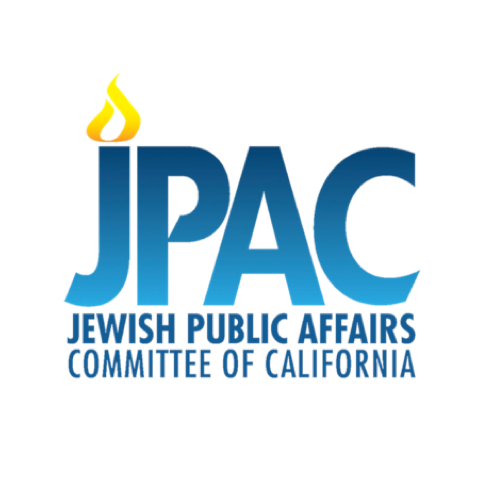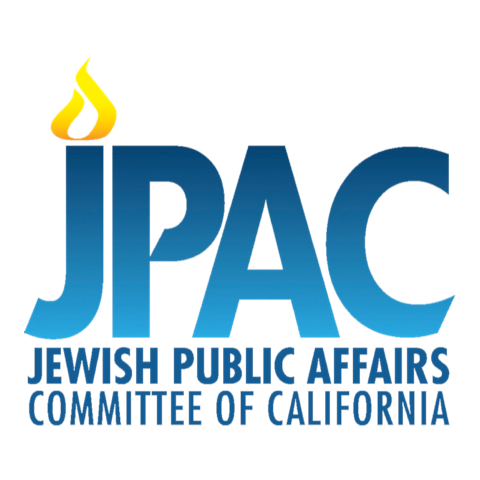The J.: Legislative roundup: Jewish priorities during ’21-’22 session included cyberhate, security and Holocaust education
BY LILLIAN ILSLEY-GREENE | October 6, 2022
With the 2021-2022 California legislative session just ended on Sept. 30, advocates with the Jewish Public Affairs Committee, a lobbying group representing Jewish interests in Sacramento, celebrated 15 initiatives it had prioritized for the Jewish community being signed into law. More than half were new bills.
JPAC executive director David Bocarsly commended fellow Jewish organizations for joining in on the legislative work, including the S.F.-based Jewish Community Federation and the Jewish Community Relations Council.
“The fact that we have Jewish organizations doing this work is indicative of our shared values as a community,” Bocarsly said. “I’m really proud of the work we’ve done this year.”
Though the issues on JPAC’s legislative agenda were broad, they were connected by the organization’s desire to build coalitions between Jews and non-Jews to benefit the community, Bocarsly said.
Many of the bills championed by JPAC addressed the issue of hate in California.
Assembly Bill 587, written by Assemblymember Jesse Gabriel, who chairs the Legislative Jewish Caucus, was greenlit by Gov. Gavin Newsom on Sept. 13. The bill will require large social media companies to report to the state their hate speech policies, as well as their metrics on hate content.
AB 2282 was authored by Bay Area Assemblymembers Rebecca Bauer-Kahan and Marc Levine. The new law equalizes the penalties for the use of “terror symbols,” such as swastikas, nooses and burning crosses, making the jail time and fines the same across the board. The bill also expands the number of places where the use of such symbols counts as a hate crime, including public property, schools and places of worship.
AB 1664, also authored by Gabriel, extends California’s Nonprofit Security Grant Program permanently.
Bocarsly also counts Newsom’s October 2021 establishment of a Holocaust and Genocide Education Council among JPAC’s victories, as the group supported the original bill, SB 693. The 2022-2023 state budget allocates $1.4 million to administer the council.
“I think about that bill as one that we were successful in getting our goals met, just in a different way,” Bocarsly said.
AB 1801 sets April 24 as “Genocide Remembrance Day” and makes it a state holiday. Though until now the date has focused on the Armenian genocide, the legislation specifies that it will be used to “reflect on past and present genocides … including, but not limited to, the Holocaust, Holodomor, and the Genocides of the Armenian, Assyrian, Greek, Cambodian, and Rwandan communities.”
Other bills cover aid for domestic abuse survivors (AB 2277), issues around homelessness for women (SB 914) and the expansion of CalFresh to support college students in need (SB 641). Additional bills highlighted by JPAC were SB 1161, by Sen. Dave Min, to survey harassment on public transit, and AB 2244, by Assemblymember Buffy Wicks, to reduce residential parking requirements for religious institutions.
Other JPAC priorities came to fruition as line items in the state budget. “Those I would consider legislative victories,” Bocarsly said. They include an expansion of benefits for Medi-Cal (AB 4/SB 56) and CalFresh (SB 464) regardless of immigration status, and a modification of the Young Child Tax Credit (SB 860).
The HOPE for Children Act (SB 854) establishes trusts for children who lost parents due to Covid-19. Another bill-turned-budget-initiative (AB92) waives family fees for state-subsidized preschool, child care and development services for low-income families through June 2023; an earlier version that would have lowered the fees permanently was vetoed by Newsom due to budget concerns.
The next legislative session opens on Dec. 5. In the meantime, JPAC will meet with its member organizations and partners to hear concerns, discuss policy goals and plan ahead. When deciding which issues to support, JPAC returns to its standing policy framework, Bocarsly said, but specific legislative priorities are yet to be determined.
“Success looks different every year,” Bocarsly said.
To read the J. article, click here.
—
Lillian Ilsley-Greene is a J. Staff Writer. Originally from Vermont, she has a BA in political science and an MA in journalism from Boston University. Follow her on Twitter at @lilsleygreene.


